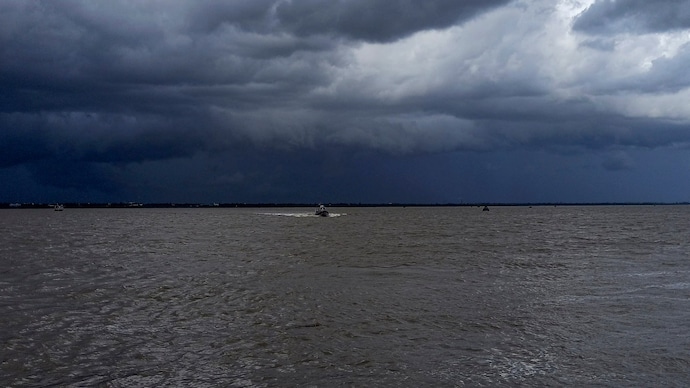Cyclone Remal, the latest storm to hit Bangladesh and India, has caused massive destruction. It displaced hundreds of thousands, highlighting the urgent need for climate resilience and support.https://greentime.news/As climate change worsens these disasters, Bangladesh’s call for a Loss and Damage fund at COP29 grows more critical.
Impact of Cyclone Remal
Cyclone Remal made landfall in May 2024, battering the coastal regions of Bangladesh with relentless force. Save the Children reports Cyclone Remal left over 270,000 children homeless, highlighting the human cost of such disasters. The cyclone’s winds, reaching speeds of up to 150 km/h, and torrential rains have destroyed homes, inundated farmlands, and damaged infrastructure. These events have left lasting scars on the affected communities.
The Daily Star reported that the cyclone left approximately 1.73 crore (17.3 million) people without power, highlighting the severe disruption to essential services. This blackout extended for days, hampering rescue and relief operations and exacerbating the hardships faced by the affected populations.
Climate Change and Increasing Cyclone Intensity:-
The increasing intensity and frequency of cyclones like Remal are symptomatic of the broader impacts of climate change. Warmer ocean temperatures provide more energy for storm systems, making cyclones more powerful and destructive. The Bay of Bengal, where these storms typically form, has seen a significant rise in sea surface temperatures, contributing to the enhanced intensity of these storms.
According to Al Jazeera, Cyclone Remal’s destructive path additionally reached into India, impacting millions in West Bengal and Assam. The widespread damage underscores the regional scale of climate disasters and the need for coordinated international responses.
The economic toll of Cyclone Remal is still being assessed, but damages could run into billions of dollars. The loss of homes, crops, and infrastructure poses long-term challenges for recovery and rebuilding. For Bangladesh, a country where a significant portion of the population lives in poverty, the economic burden of such disasters can be crippling.
The social impacts are equally profound. Displacement and loss of livelihoods can lead to long-term poverty and social instability. The displacement of over 270,000 children also raises concerns about their access to education, healthcare, and safe living conditions. As these families rebuild, the need for strong social safety nets and international support becomes evident.
At COP29, Bangladesh’s delegation will undoubtedly emphasize the critical need for a Loss and Damage fund.This fund is envisioned to provide financial support to countries like Bangladesh. They bear the brunt of climate change impacts despite minimal global greenhouse gas emissions.
The principle of climate justice underpins this demand.Developed nations, responsible for most emissions, have a moral obligation to help vulnerable countries cope with climate change impacts. A Loss and Damage fund would acknowledge this responsibility and provide resources for affected countries to recover and build resilience.
Cyclone Remal serves as a grim reminder of the devastating impacts of climate change-induced disasters. As Bangladesh deals with the storm’s aftermath, the broader implications for climate policy and international support become clear. The establishment of a dedicated Loss and Damage fund at COP29 is not just an urgent need but a moral imperative.
The international community must recognize Bangladesh’s disproportionate burden. They must act decisively to provide necessary financial and technical support.
The future resilience of millions of vulnerable people depends on these actions. As we witness the increasing severity of natural disasters, the call for climate justice and robust support mechanisms grows louder and more urgent.
Md Mahir Daiyan
Climate Change Researcher & Editor in Chief , Green Time

